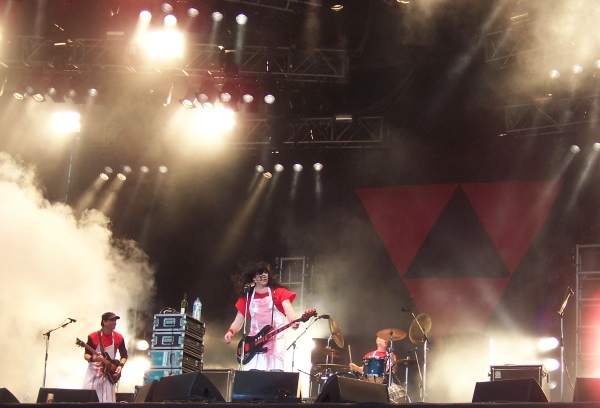Back in the late eighties, a friend of mine turned me on to the New York band, Carnivore, telling me they were one of the baddest hardcore bands ever.
I knew next to nothing about them, except that I saw ads for their second album, Retaliation, in metal magazines, and that they were under fire for their lyrics when a lot of New York bands were catching flack for their right wing politics.

Listening to the album, the music was indeed great, although indeed I wasn’t totally cool about the lyrics, some of which caused them no end of trouble.
Then again, it reminded me a bit of the S.O.D. album, “Speak English or Die,” which was the joke side-project of Anthrax that was an equal opportunity destroyer in the sense that it had something to offend everybody, and nobody didn’t get hammered.
In fact, this is what a friend of mine always loved about Carnivore’s “Retaliation,” was that it was “anti-everything.” Try to imagine Archie Bunker forming a hardcore band and you’ll get the picture.
After Carnivore broke up, their leader, Peter Steele, who wrote all the music and lyrics, formed Type O Negative, and you could hear it picked up where Carnivore took off, but Steele also added in a lot more innovative elements like keyboards.
They stood out like a sore thumb opening for bands like The Exploited and Motley Crue, because there was nothing like Type O at the time, where there are innumerable extreme metal bands use keyboards today.
The first Type O album also had similarly inflammatory lyrics in at least one song, but as time went on they dropped a lot of the right wing politics, and grew more gothic, while also still focusing on the personal neurosis and psychosis of Steele. (Carnivore had one of the best songs about panic attacks, “Inner Conflict,” and also fittingly covered Jimi Hendrix’s “Manic Depression.”)
When Steele died last year at the age of 48, it was a terrible loss, but not a surprise. Steele had terrible demons he couldn’t get a grip on. He tried to commit suicide at least once, and also did a stint in Riker’s Island, with his family hoping it would create a bottom, but it was clear in interviews after he got out of jail he didn’t get the message.

When anyone goes too young, there’s always the tragedy of the potential wasted, and there was always the feeling Type O could have been a much bigger band, and that Steele could have done even more with his talent. (He often talked about doing movie soundtracks, and Type O’s music could have fit in very well with a Blade Runner style science fiction story.)
For the next generations that will discover Steele’s music in the future, it’s sure to hold up very well and feel just as innovative as when it first came out.






